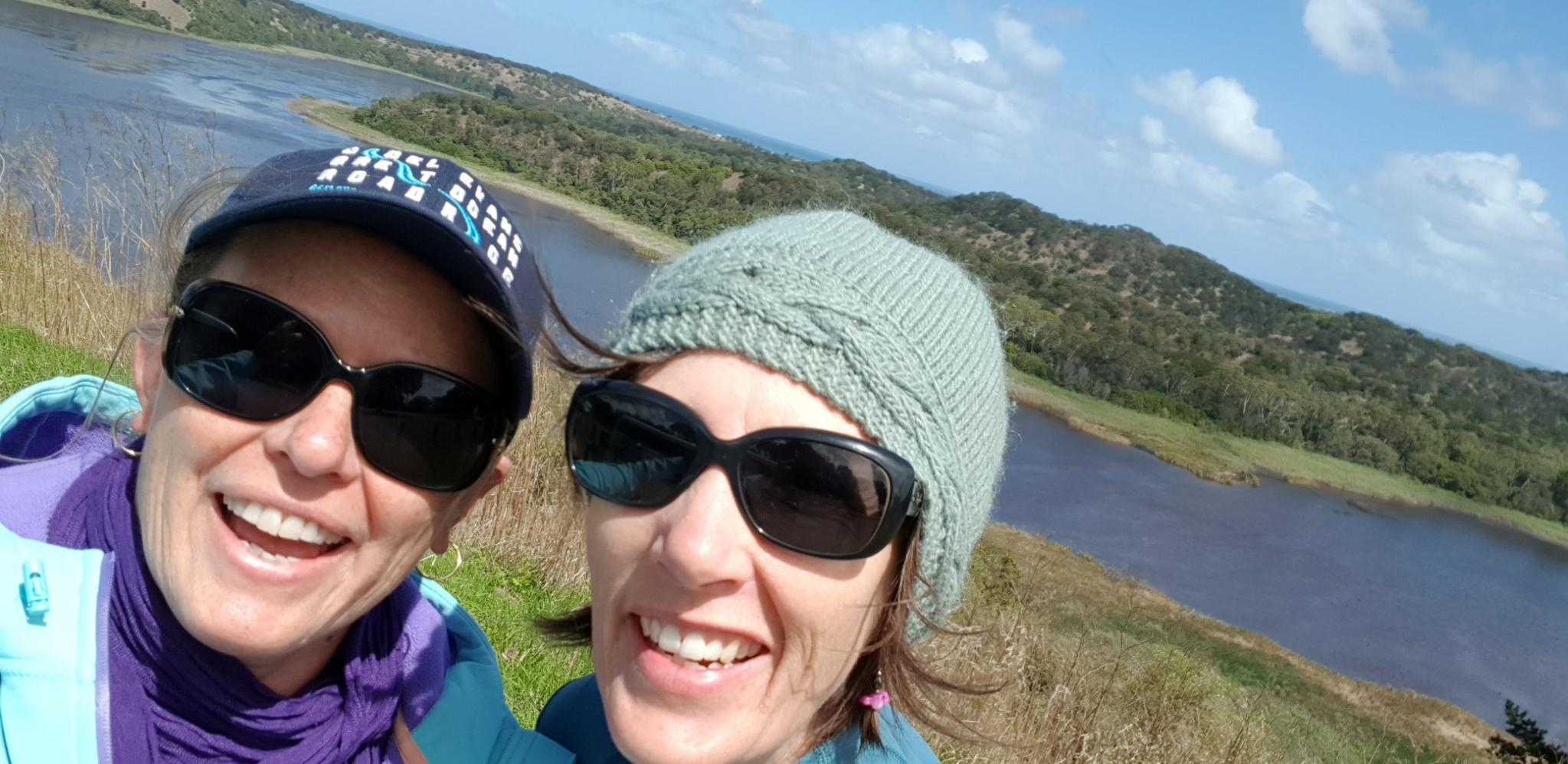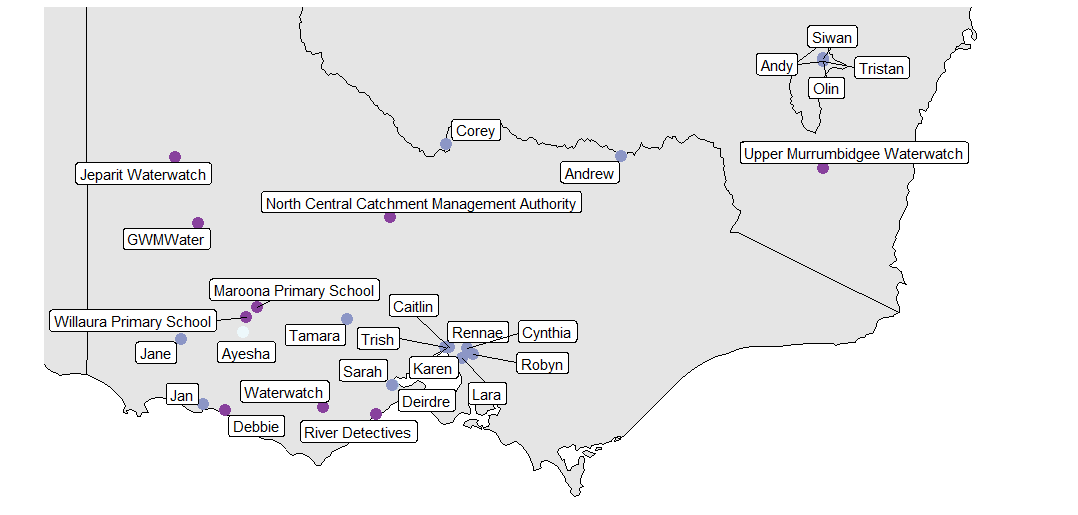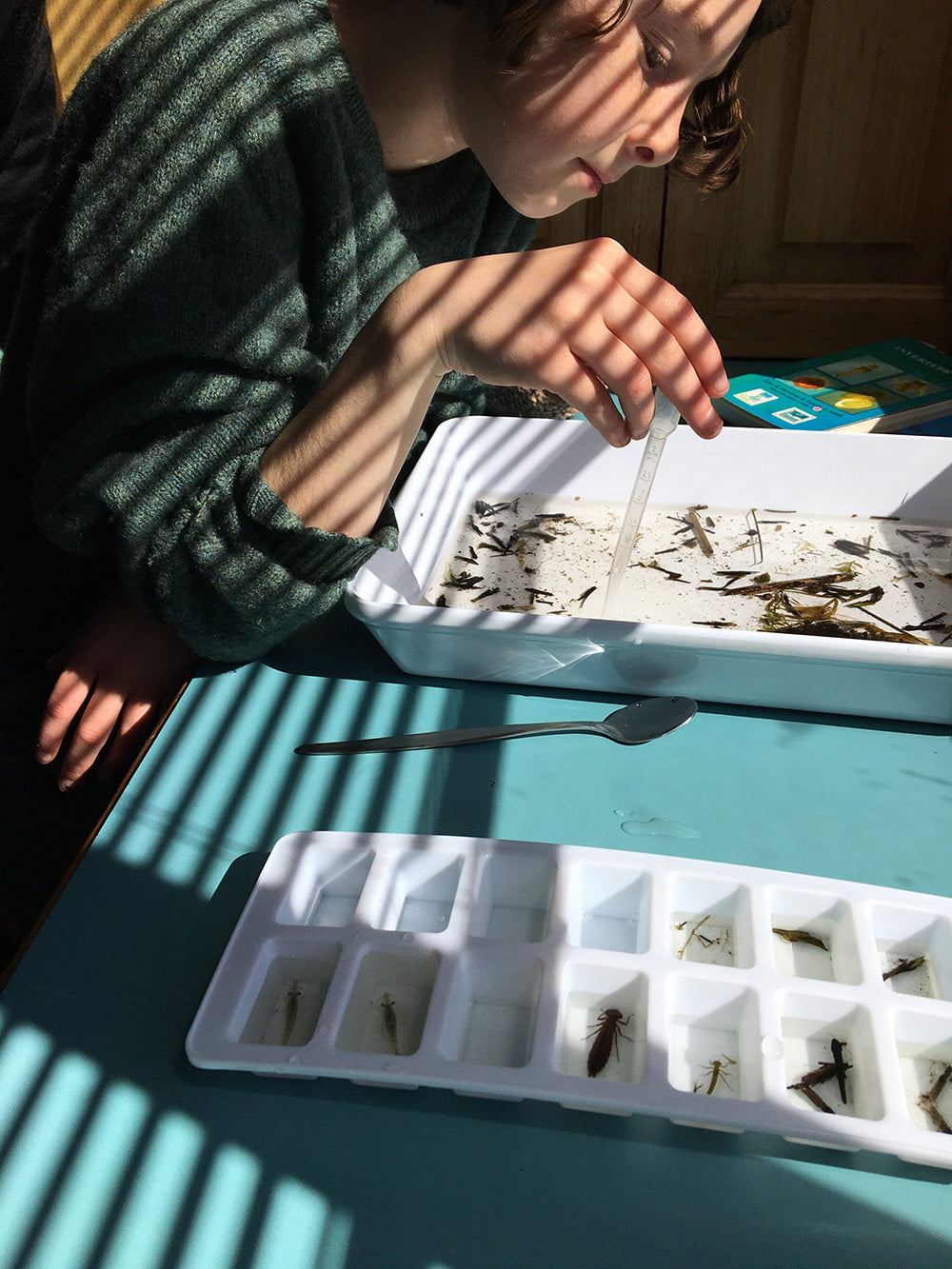Mentee: Ayesha Burdett – Upper Hopkins Land Management Group
Mentor: Deirdre Murphy – Corangamite Catchment Management Authority
Start with why!
Primarily, we were interested in sharing our knowledge with others to create a good community of stewards for our waterways. Getting kids out on the land and water is important for their education and connection with the natural environment.
Deirdre has specialist knowledge in developing and delivering citizen science programs: she knows how to navigate the needs of schools and create a great program that can collect useful data. Ayesha has a background in freshwater science and waterbug expertise, but didn’t know how to launch a program. Working together seemed like a great way to get a new program started.

The big idea
The idea is simple: work with two local primary schools in the Upper Hopkins to have a day out with Landcare, exploring local waterways, learning about water quality and enjoying the environment.
Our approach was to:
- Leverage River Detectives, a Victorian freshwater education program, for existing resources and methodology for performing water quality testing with school groups.
- Make use of citizen science data by sharing it with a larger online community.
- Engage with schools and connect Landcare to the local community.
Were we successful?
We were unable to deliver programs to school students because of COVID restrictions and at-home schooling (for both the target schools and the mentee). We considered developing online programs and a lot of different options, but DHHS guidelines and COVID restrictions made it difficult to plan when the situation was constantly changing. However, there are school programs planned for 2021.
Our project was successful but not in a way that we predicted. The greatest outcome from this project was establishing key relationships from across the state: the network is our measure of success. The diagram below shows the networks Ayesha established as a result of being part of the Twinning Program.

How do we share our learnings with others?
One of the goals of this mentorship partnership was to outline the steps involved in engaging new program leaders in environmental education programs.
Within this mentorship we have identified some key activities that facilitate the way forward. These include:
- Leadership by the program leader and participating school principals;
- Having an educational outcome as a clear goal;
- Identifying scope and scale of project (in this case, the Upper Hopkins);
- Sourcing budgets and resources; and
- Constant evaluation of program delivery towards goals.
These were able to be explored to a degree but were ultimately restricted by the COVID-19 pandemic.
One important outcome of the Twinning mentorship was to increase skills and knowledge of participants, and we found the perfect way to do this is through network development. This program introduced both the mentor and the mentee to new partners and opened up new opportunities. Building networks is useful for all mentorships, but none more so than in an engagement program like this. There are huge benefits in developing networks by sharing knowledge, increasing awareness of available programs, optimising the potential of the program and individual participants.
While the Twinning outcomes may be unusual in 2020, the development of professional connections has been extremely valuable. More than any other activity, the development of networks has provided outcomes that should be shared with others through workplaces and existing networks.
Thank you to Siwan and Jan, and the whole Waterway Management Twinning Program network, particularly the 2020 Alumni. We’re very grateful to have been involved in this program and plan to continue the relationships built among Twinners this year.

The Waterway Management Twinning Program is a structured mentoring program, focusing on improving the on-ground delivery of current Victorian riparian restoration projects. This Program provides an opportunity for the most effective approaches to be shared and adopted between all those working in waterway management across the State.